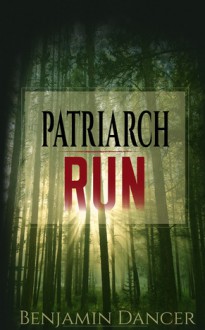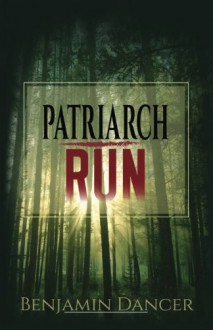

Die US-amerikanische Young Adult – Autorin Emily Jenkins, besser bekannt unter ihrem Pseudonym E. Lockhart, verfolgt nicht den Anspruch, ihren jugendlichen Leser_innen eine Lektion zu erteilen. Sie ist der Auffassung, dass Jugendliteratur nicht dazu verpflichtet, Rollenmodelle anzubieten. Ihrer Meinung nach enthält das Lesen von Fiktion grundsätzlich eine moralische Ebene, weil sie dazu einlädt, Empathie für andere Lebensrealitäten zu entwickeln. Ihr Job besteht darin, Geschichten zu erzählen, nicht, mit dem mahnenden Zeigefinger zu wedeln. Ich stimme ihr zu, denn ich denke, eigene Schlüsse zu ziehen, ist wesentlich lehrreicher. Diese Herangehensweise erlaubt Lockhart, ohne Gewissensbisse schwierige Hauptfiguren zu fokussieren, wie die Protagonistin Cady Sinclair im Mysterythriller „We Were Liars“.
Die Sinclairs sind eine respektable Familie. Sie sind schön, sie sind reich, sie sind perfekt. Nur die 17-jährige Cady passt nicht ins Bild. Seit ihrem Unfall vor zwei Jahren auf Beechwood, der kleinen Privatinsel der Familie, ist nichts mehr, wie es war. Sie ist nur noch ein Schatten ihrer selbst, gepeinigt von marternden Migräneanfällen, ihrer Erinnerungen beraubt. Sie weiß nicht, was damals im Sommer geschah, wie sie sich verletzte. Als Cady in diesem Sommer nach Beechwood zurückkehrt, wünscht sie sich nur, dass alles wieder normal ist. Doch sobald sie die Insel betritt, spürt sie, dass sich in der sorgfältigen Fassade ihrer Familie Risse zeigen. Niemand will ihre Fragen zu ihrem Unfall beantworten. Cady wird von verwirrenden Erinnerungsfetzen gequält. Sie ahnt, dass sie belogen wird. Aber ist es ihre Familie, die die Wahrheit vor ihr verbirgt – oder ist sie es selbst?
Ich habe die Bewertung von „We Were Liars“ nachträglich runtergestuft. Direkt nach der Lektüre war ich von der Intensität der Geschichte begeistert und vergab vier Sterne. Als ich später versuchte, meine Gedanken zu notieren, stellte ich fest, dass es mir schwerfiel. Jetzt, weitere Monate später, muss ich einsehen, dass dieser Thriller wenig Eindruck bei mir hinterließ und ich kein richtiges Gefühl für ihn heraufbeschwören kann. Ich empfinde… gleichgültige Leere. Dieser musste ich selbstverständlich auf den Grund gehen, denn während der Lektüre erschien mir das Buch durchaus emotional, also woher der Sinneswandel? Ich grübelte und kam zu dem Schluss, dass ich „We Were Liars“ zwar fesselnd und ergreifend fand, ihm meiner Ansicht nach jedoch ein entscheidender Bestandteil fehlt. Es mangelt am Herzstück eines jeden Young Adult – Romans: der Botschaft. Mag sein, dass andere Leser_innen das anders beurteilen, aber für mich hat das Buch keinerlei tiefere Bedeutung. Es ist einfach nur eine interessante Geschichte, nicht mehr, nicht weniger. Ich glaube, das hängt damit zusammen, dass ich mich kaum mit der Ich-Erzählerin Cady identifizieren konnte. Ihre Probleme sind sehr weit von meiner eigenen Lebensrealität entfernt. Cadys Familie ist Teil des US-amerikanischen Geldadels. Sie können ihren Stammbaum bis zur Mayflower zurückverfolgen. Die Sinclairs sind reich, sie sind stolz, sie sind elitär. Sie besitzen eine verdammte Privatinsel! In diesem Mikrokosmos, diesem Königreich, herrscht Cadys Großvater uneingeschränkt als Patriarch, der seine Töchter und Enkel nach Lust und Laune manipuliert. Sie alle sind von seinem Geld abhängig, weshalb er sie mit boshafter Freude gegeneinander ausspielt. Die Parallelen zu einem Märchen sind nicht von der Hand zu weisen und beabsichtigt, denn E. Lockhart involviert in unregelmäßigen Abständen Abschnitte, in denen Cady ihre Sippe aus der Märchen-Perspektive betrachtet. Ihr Schreibstil erinnert oft an Lyrik, dessen sanfte Poetik sie nutzt, um Situationen zu beschreiben, die alles andere als märchenhaft sind. Die Sinclairs sind das Paradebeispiel einer kaputten, dysfunktionalen Familie, in der Konflikte totgeschwiegen werden und Zuneigung mit Materiellem gleichgesetzt und stets an Bedingungen geknüpft ist. In diesem angespannten Verhältnis ist Cady der Faktor, der alles durcheinanderwirbelt, weil sie sich nach ihrem Unfall nicht mehr so benimmt, wie es von einer Sinclair erwartet wird. Dennoch wird sie wie ein rohes Ei behandelt, was für Cady natürlich frustrierend ist, weil sie allein mit ihren lückenhaften Erinnerungen zurechtkommen muss. Ihre partielle Amnesie beeinflusst die Atmosphäre von „We Were Liars“ maßgeblich, deren sepiagetönte, traumähnliche Qualität erst aufbricht, als Cady ihr Gedächtnis langsam wiedererlangt. Für mich war dieser milchige Schleier ein eindeutiger Hinweis darauf, dass in der Szenerie etwas nicht stimmt. Ich ahnte, dass Cady mehr als nur die Umstände ihres Unfalls vergaß. Der Reiz der Lektüre liegt demzufolge darin, herauszufinden, was ihr verschwiegen wird. Obwohl der inhaltliche Verlauf dadurch vorhersehbar war, fand ich die Enthüllung der Wahrheit überraschend und äußerst tragisch. Schade, dass sich darin für mich kein tieferer Sinn verbarg.
„We Were Liars“ soll den Leser_innen keine Lektion erteilen. Das ist für mich völlig in Ordnung, doch eine erkennbare Intension hätte ich mir schon gewünscht; irgendeine Botschaft, die sich auf mein eigenes Leben anwenden lässt. Offenbar erwarte ich das von Young Adult – Literatur. Es war nett, festzustellen, dass meine Familie völlig anders funktioniert als die Sinclairs und ich bin dankbar, dass wir keine Tragödie brauchen, um den Wert familiären Zusammenhalts zu begreifen, aber da Cadys Situation daher über keinerlei Verbindung zu mir als Leserin verfügt, hakte ich das Buch sehr schnell ab. Es berührte meine Seele nicht, weil es keine Resonanz mit meiner Persönlichkeit und Identität erzeugte. Ich bin keine Sinclair und werde niemals wie Cady sein. Zum Glück, möchte ich hinzufügen. Vielleicht können andere Leser_innen mehr aus der Geschichte herausziehen. Für mich war „We Were Liars“ lediglich unterhaltsam, Punkt.

 Log in with Facebook
Log in with Facebook 








